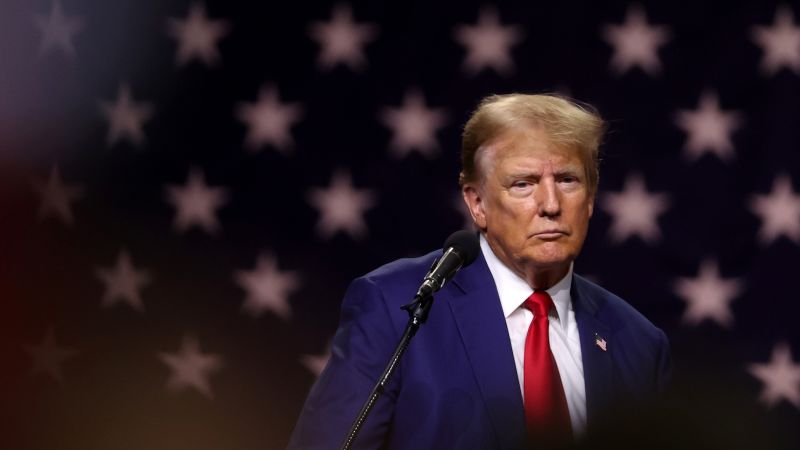Donald Trump’s strongman persona has always included an undercurrent of implied violence, and as his first trial and the general election approach, he is ramping up the tension by sharing controversial images and making threats against judges and prosecutors. While Trump’s behavior may not be surprising given his past actions, the context of his looming trials and the upcoming election make his behavior more concerning. His continuous attacks on judges and the legal system are unprecedented for a former president, and illustrate his disregard for the rule of law.
The Republican Party largely ignores or excuses Trump’s conduct, as his power within the party is so strong that opposing him can cost promising politicians their careers. His behavior is accepted by vast numbers of grassroots voters, who are drawn to his anti-establishment appeal. Trump and his supporters argue that his criticism of the legal system is justified, as he claims to be a victim of political persecution from Democrats, including President Joe Biden. This persecution narrative becomes a potent political message for Trump, allowing him to delegitimize unfavorable verdicts.
The consequences of Trump’s behavior are evident in interviews with a GOP lawmaker and a federal judge, who express concerns over the security risks posed by Trump’s attacks on judges and the courts. Judge Reggie Walton warns of the profound impact of Trump’s rhetoric on the justice system, highlighting the responsibility of judges to uphold the rule of law without fear of physical harm. Trump’s relentless attacks on judges, prosecutors, and the legal system continue to push the boundaries of acceptable behavior, raising concerns among legal experts and lawmakers.
Trump’s assaults on the judiciary play into his political narrative as a rebel outsider fighting a corrupt political system, but they also come with a cost to democracy. By perpetuating the idea that he is the victim of political persecution, Trump undermines the neutrality of the legal system and fosters a sense of collective injustice among his supporters. His attacks on judges and prosecutors, coupled with his calls for political loyalty from the judiciary, threaten to erode the rule of law and the independence of the judiciary.
As the upcoming election approaches, Biden’s campaign is seizing on Trump’s behavior to portray him as a threat to democracy and the rule of law. Senior Republicans, faced with Trump’s controversial actions, often avoid rebuking him or downplay his behavior. Trump’s rhetoric continues to dominate the political discussion, overshadowing important issues facing the American people. Whether Trump’s divisive tactics will lead to his defeat in the election or result in a tumultuous presidency remains to be seen, but his behavior sets a dangerous precedent for the future of democracy in the United States.















